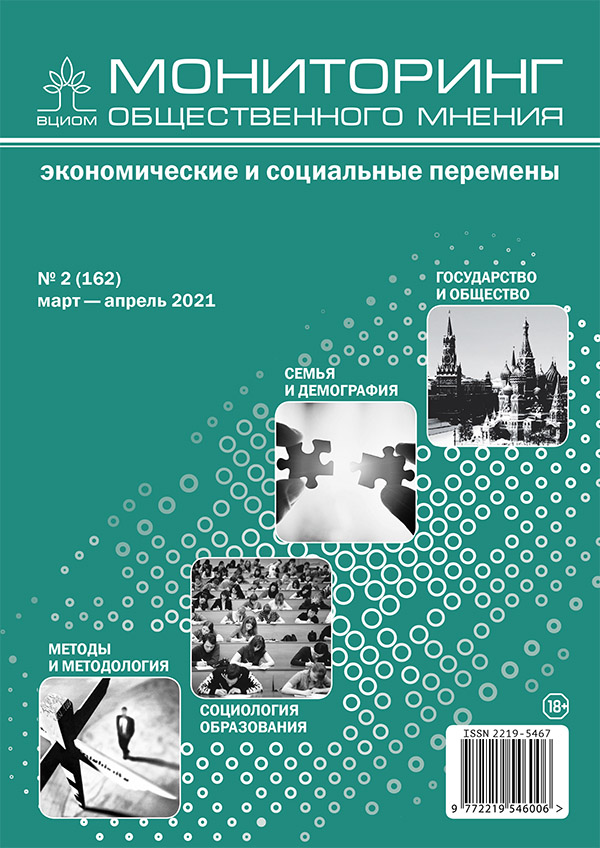“Endless Groundhog Day”: Sociological Analysis of Educational Practices Implemented by University Students in a Situation of Forced Isolation
DOI:
https://doi.org/10.14515/monitoring.2021.2.1765Keywords:
everyday life practicies, distance learning, the youth, COVID-19 pandemicAbstract
The article examines learning modes during the forced transition to distance learning in the spring of 2020. During this period, many young people experienced a breakdown of the set-up of their everyday life: some were closed in a confined living space, someone had to return to their parental family, someone was isolated in a university dormitory. Globally, the quarantine has created a situation when usual structures of everyday life and learning activities were broken. The authors are interested in how students' everyday life changed in the spring of 2020. Distance learning in the context of self-isolation is associated with a change in forms of social inclusion within the educational process, as well as with restructuring of the locality and temporality of learning practices, leisure, free time, communication, and the search for new ways of “self-management” (maintaining concentration and involvement in the educational process, fighting procrastination and trying to make your everyday life comfortable). The authors utilize main concepts of the sociology of everyday life (practice theory), focusing on the micro-level of everyday communications. The empirical basis of the research is semi-structured interviews with students of a university in St. Petersburg (N = 35). The data analysis made it possible to understand how young people adjust to learning in isolation, what practices they develop and how they experience ruptures in the habitual fabric of everyday life. Students were forced to restructure the space and time by zoning, arranging virtual classrooms, creating a new daily routine, involving in distant localnesses, (a)synchronizing the time of study and extracurricular practices. The authors describe the modes of inclusion in educational communications “camera on” and “camera off”, thereby contributing to the discussion on issues related to the sociological understanding of blurring the boundaries between private and public in contemporary society.
Acknowledgments. The article was prepared within the research “The Development of the educational model for liberal arts and sciences in the context of digitalization” (RANEPA, 2020, project ID in the Pure system of St. Petersburg State University 53583510).
Downloads
Published
How to Cite
Issue
Section
License
Copyright (c) 2021 Monitoring of Public Opinion: Economic and Social Changes Journal (Public Opinion Monitoring) ISSN 2219-5467

This work is licensed under a Creative Commons Attribution-NonCommercial-ShareAlike 4.0 International License.






